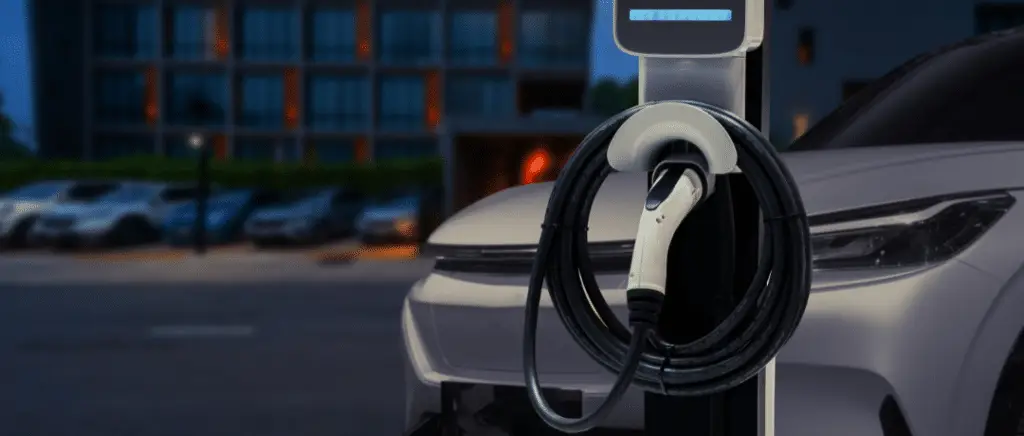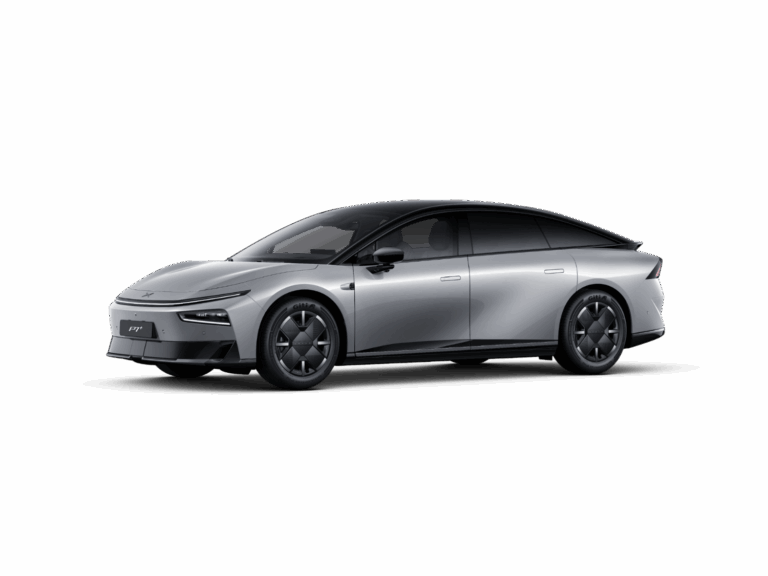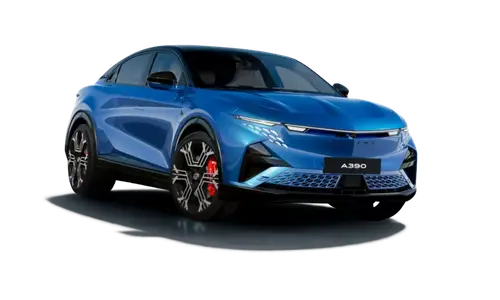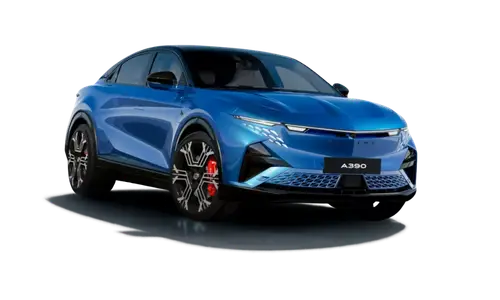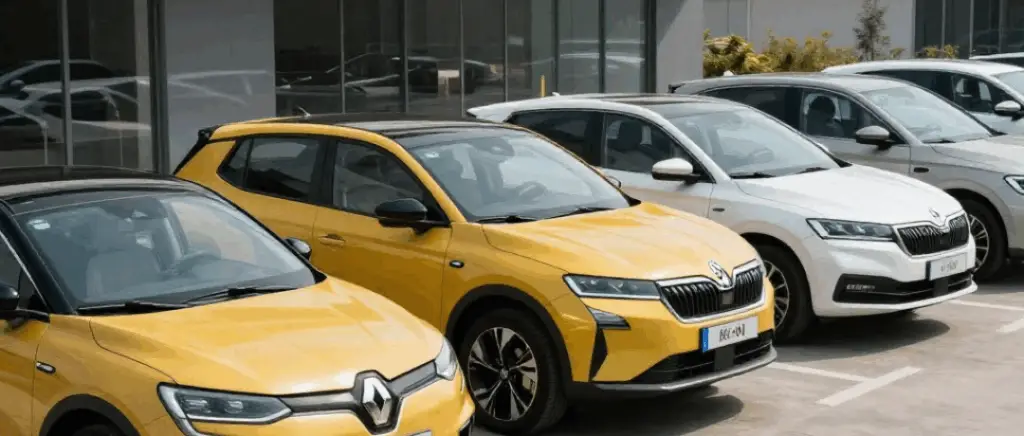your charging point
Charging stations in France: where do we stand?
In France, the boom in electric vehicles is palpable, and this is reflected in the growing number of charging points available.
As of 30 April 2023, France had 99,404 charging points accessible to the general public for around 1.2 million electric or plug-in hybrid vehicless, marking an increase of 66 % in one year. There are currently 148 charge points for every 100,000 inhabitants. Avere-France also reports on the installation and operation of the connection of 17,000 recharging points to the public distribution network.
France now surpasses Germany in terms of recharging points, ranking 2ᵉ in the European Union after the Netherlands. The validation of the European AFIR regulation opens up new prospects for recharging, with targets largely achieved in France.
To illustrate my point, these regulations require :
- 1.3 kW per electric vehicle (compared with 4 kW per vehicle in France),
- fast-charging stations every 60 km along the Trans-European Transport Network (TEN-T) by 2025 (which has been possible on our motorways since summer 2023).
Progress has been encouraging. However, there is still some way to go to meet the growing needs of clean vehicle drivers.
Number of recharging points in France
Reaching the 100,000 recharging points accessible to the general public from 5 May 2023We can see that the electric mobility ecosystem is proving dynamic. According to Avere France, since January 2023, more than 17,000 charging points have been integrated into the public distribution network, representing ⅔ of last year's installations.
Despite this 2020 target, the achievement of this milestone confirms the vigour of deployment, even outstripping the forecast growth in the electric vehicle fleet up to 2035. It also underlines the importance of optimising user satisfaction and integrating new uses for greener mobility. In fact, in 2020, the French government set this target (which had become a necessity) for the end of 2021 in order to stimulate momentum and encourage all players to move over to the green side of the force. And this incentive has worked: in contrast to the annual average of 4,000 charging points, more than 20,000 were installed in 2021, testifying to the commitment of all the players.
With this in mind, it is essential to adapt charging power to the location and needs of users. Growth is particularly marked for very high-power charging points. These have now passed the 270 % mark in one year, reaching almost 7,000 charging points of 150 kW (and more), crucial along expressways and motorways for long journeys.
In short, by 31 October 2023, more than 111,209 recharging points open to the publicThis represents an increase of more than 47% and an average availability rate of 83%.
Did you know? : Of the more than 111,000 charging points in France, 84% offer charging power of less than 22 kW, including 51% between 7.4 and 22 kW.
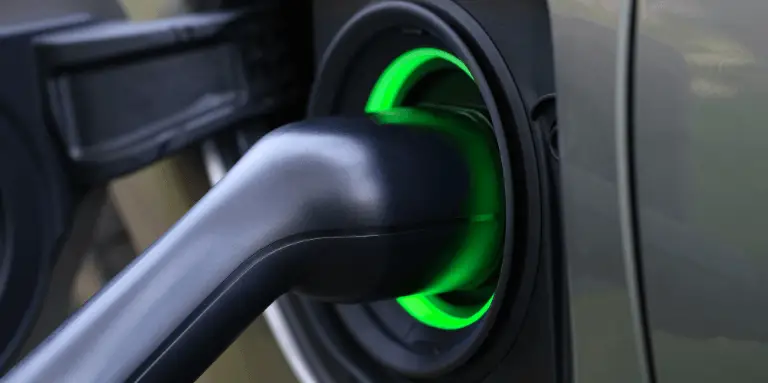
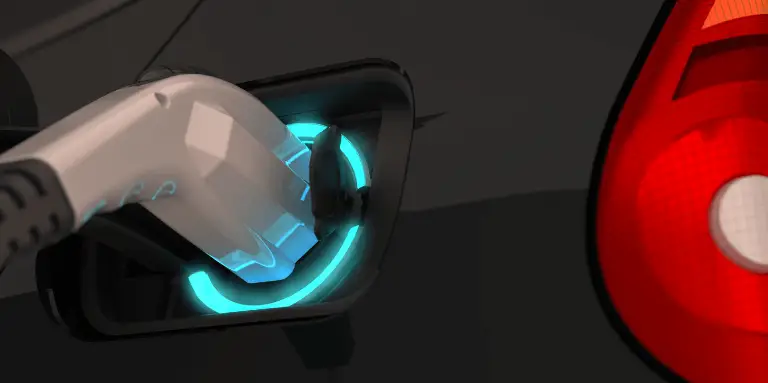
Distribution of recharging solutions in France
Despite the deployment of recharging solutions across the country, the number of charging points remains insufficient for motorists, and the lack of a strategy for installing them across the country continues to vary from region to region. What's more, 39% of them suffer regular breakdowns.
As a result, here is the breakdown of charging points by region (data updated to 31 October 2023).
| RÉGIONS MÉTROPOLITAINES | NOMBRE DE POINTS DE RECHARGE |
|---|---|
|
Hauts-de-France
|
9 857
|
|
Normandy
|
6 114
|
|
Great East
|
10 413
|
|
Brittany
|
4 566
|
|
Île-de-France
|
19 392
|
|
Pays de la Loire
|
5 332
|
|
Centre-Val de Loire
|
4 603
|
|
Burgundy-Franche-Comté
|
4 490
|
|
New Aquitaine
|
10 407
|
|
Auvergne-Rhône-Alpes
|
13 042
|
|
Occitania
|
10 597
|
|
Provence-Alpes-Côte d'Azur
|
9 690
|
|
Corsica
|
788
|
Here, on the other hand, is a summary table by overseas region:
| RÉGIONS D’OUTRE-MER | NOMBRE DE POINTS DE RECHARGE |
|---|---|
|
Guadeloupe
|
120
|
|
Martinique
|
152
|
|
French Guiana
|
39
|
|
La Réunion
|
256
|
For a more precise breakdown, here is a breakdown of charging points by location:
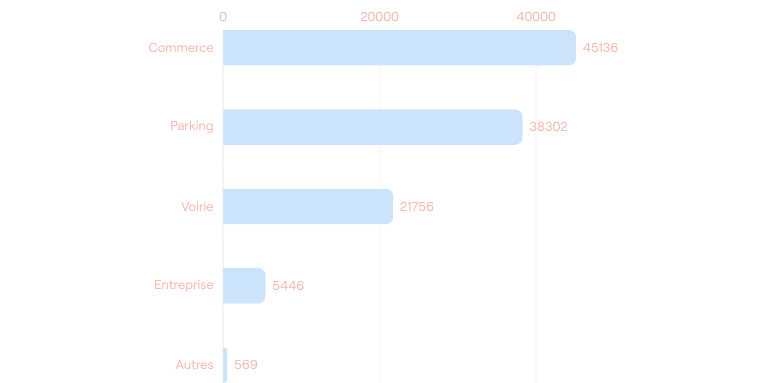
Source : Avere France
Black spots linked to charging stations
Despite these promising figures, it's not just the uneven distribution that is holding motorists back from eco-friendly cars. In fact, the points working against the ecological transition are as follows substantial price differences between different charging pointsbut also the lack of clarity on these price in question.
On the one hand, when we park at a charging point, no price is displayed like at a petrol station.
On the other hand, the consumers' association has noted discrepancies of rate of up to 800% on a single charge point ! You should be aware that each operator has its own pricing formula, which varies according to a number of factors:
- the price per kWh,
- the price of parking,
- the operator's fixed costs,
- costs per minute.
These issues raise major challenges if we are to encourage as many individuals and businesses as possible to opt for green mobility.
What's the next target?
In addition to quantitative growth and the acceleration of installations (particularly in DC charging), guaranteeing a positive user experience remains paramount:
- quality of service,
- ease of use,
- attractiveness,
- maintenance,
- rates.
On motorways, these elements are particularly important, with all service areas to be equipped with fast and ultra-fast recharging points by the end of the year, encouraging long-distance journeys in electric vehicles.
Good to know At the launch of the Mondial de l'Auto 2022, French President Emmanuel Macron chose an intermediary plan for the study conducted by Avere-France, which envisages the creation of a European network of car manufacturers.400,000 public charging points to be installed by 2030. This study indicated the need to set up between 330,000 and 480,000 publicly accessible recharging points for light vehicles by 2030.
Indeed, the user experience is an element that needs to be taken into account now and even more so in the future. What's more, we need to take into account the new demands and needs of users. As a result, we need to be able to accommodate future electric vehicles on the road and anticipate installation times, while incorporating new uses, such as the use of a car park. heavy mobility. The current international context is prompting heavy goods vehicle manufacturers to turn to electric solutions for their vehicles. battery initially, and hydrogen as a complement. This will certainly mean electrifying depots, but it will also mean thinking about roaming, to encourage and promote the electrification of company fleets.
To find out more about corporate fleets, read our article on the subject:
Electric vehicle fleet: the complete guide
and
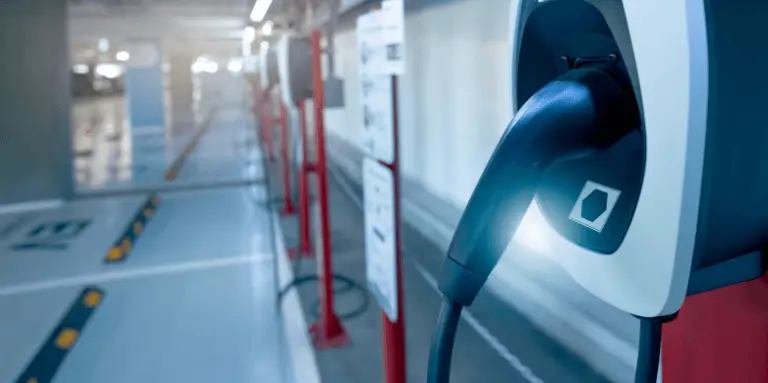
Grants allocated in 2024 for the installation of charging points
As previously stated, France finally reached its target of 100,000 public charging points this spring 2023. However, this symbolic threshold remains insufficient for the government.
A newterminal plan"was launched by the French government in October 2023, releasing 200 million euros to facilitate the installation of recharging points on roads, but also at private homes.
With this new budget released, what support can you claim for 2024?
For individuals
A number of grants are available to private individuals for the purchase and installation of a charging point in 2024, with a few changes compared with 2023. Here they are.
Tax credits
Originally, owners of electric vehicles were eligible for the tax credit75 % of the cost of purchasing and installing a home charging point. This credit was applicable for work carried out between 1ᵉʳ January 2021 and 31 December 2023. It was also limited to €300 per charging point and per household, with no income requirement to qualify.
But there's good news: from 2024, this aid will rise from €300 to €500. No more excuses for not buying a home charging point!
Reduced VAT for individuals
In fact, you can take advantage of VAT reduced to 5.5 % for the installation of a recharging point, subject to compliance with standard NF C 15-100 (detailing safety standards for low-voltage electrical installations).
At BeevWe offer you the best terminals, with assistance in obtaining them, and rapid installation within 10 working days. Don't hesitate to contact our experts !
For professionals
For professionals, on the other hand, support is rarer than for private individuals. Although the Advenir programme has evolved, it is still only available to one category of professional.
You can also read this article: What changes will there be in 2023 to support for the installation of terminals in businesses?
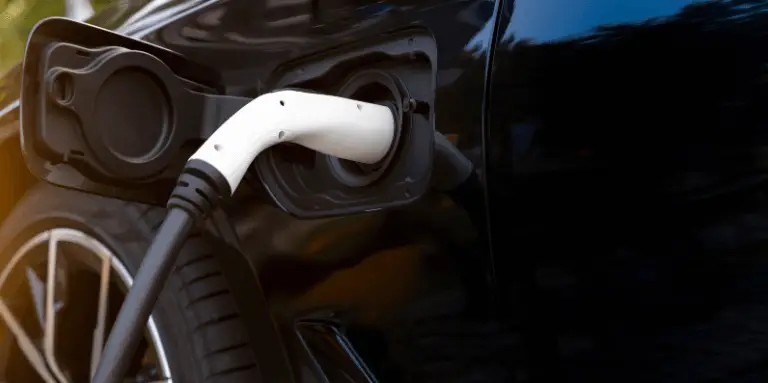
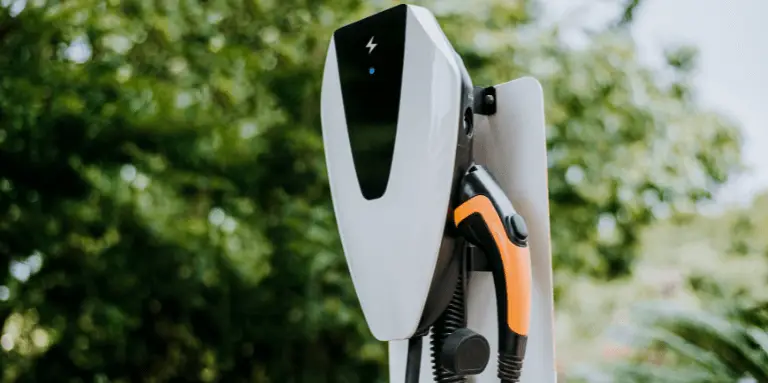
Advenir programme
Avere-France oversees the Advenir programme, which finances charging stations via energy saving certificates issued by the French Ministry for Ecological Transition and in collaboration with ADEME. This is in addition to the public actions supporting electric mobility.
From now on, the Advenir subsidy will offer 2 types of premiums exclusively for automotive service professionals.
| TYPE DE BÉNÉFICIAIRE | TAUX EN % DE L'AIDE OCTROYÉE | PLAFOND HT PAR POINT DE RECHARGE |
|---|---|---|
|
Fleet and employees
|
25%
|
750 €
|
|
Private car park open to the public
|
50%
|
from €1,700 to €7,500
|
Worth noting Eligibility for the Advenir bonus is determined upstream by the APE code of the beneficiary companies (such as 45.11Z, 45.32Z or 71.20A).
Once you have tested your eligibility, all you have to do is find an IRVE-certified installer to carry out your installation at home or at your workplace. In fact, since the decree issued on 12 January 2017, using this type of installer is essential for charging stations with a power rating of 3.7 kW.
Calling in such a professional guarantees an installation that complies with the NF C 15-100 electrical standard, ensuring quality, safety and compliance with standards.
For more information, see our article on what are the certifications and deadlines for installing a recharging point in a company? may be of interest to you.
Conclusion
France has made considerable progress in deploying charging points for electric vehicles. However, there is still some way to go to meet the growing needs of drivers. Public authorities and private players must continue to invest in the development of a reliable recharging network that is accessible to all.
On the one hand, the transition to electric mobility is an opportunity for businesses to move towards greener mobility, or to develop new products and services. Businesses can get involved in deploying charging points on their sites, supplying renewable energy and designing intelligent charging solutions.
On the other hand, private individuals can contribute to the transition to electric mobility by choosing an electric vehicle and finding out about available recharging solutions. They can also install a charging point at home or use public charging points.
If you would like to find out more aboutsupport for the installation of charging points for businesses in 2024For more information, see our article on this subject.
